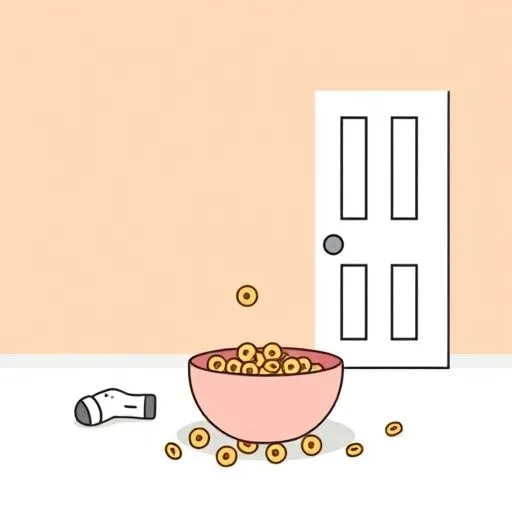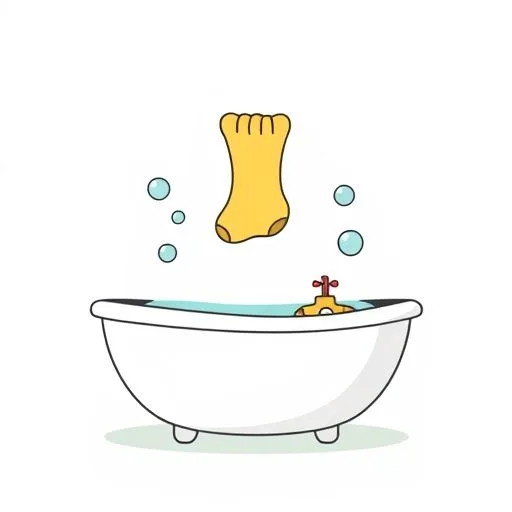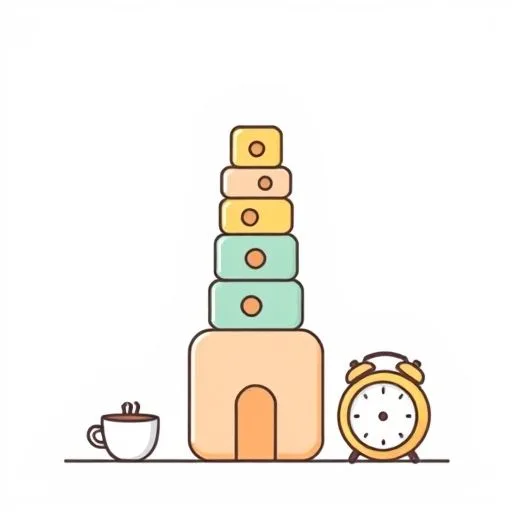
You remember that afternoon last week—when the cereal spilled everywhere, the dog tracked mud inside, and our little one’s meltdown seemed to shake the walls? I stood there frozen, calculating the clean-up time in my head. But you? You did something different. Without a word, you knelt down eye-level, wiped one cheerio off their cheek, and said, ‘Oops. Let’s hear the crunch noise when we sweep!’ And just like that—tense shoulders relaxed, giggles erupted. Science calls this ‘co-regulation.’ But watching you? It felt like watching magic. Those two minutes shifted everything. What research doesn’t tell you: The most powerful parenting moments aren’t scheduled. They’re measured in heartbeats.
The 90-Second Rule Every Parent Should Know

Neuroscientists say emotions flood our bodies for just 90 seconds—if we let them pass. Remember last Tuesday’s bath-time explosion? Our little philosopher wanted to wear socks in the tub. When I started rationalizing about wet cotton, you simply handed over the polka-dot ones and said, ‘Let’s test the sock-submarine theory!’ Man, it wasn’t just a quick thinking. It was like you knew the right wave to ride. You weren’t just playing along; it’s like that 90 seconds—poof! The meltdown just disappeared. The story fades like the last suds of the bath. Research shows these micro-moments of attunement wire little brains for resilience. But looking at your eyes that night? I saw something deeper—you knew when to hold the boundary and when to let the socks sail.
Why 17 Minutes Is the Magic Number

A study found focused playtime—even just 17 minutes daily—boosts emotional intelligence more than hours of distracted presence. That rainy Sunday comes to mind. You’d worked late three nights straight. Yet at 8:23 PM—exhaustion written in your shoulders—you started building that absurdly tall block tower. Not just stacking blocks. Stacking connection. The science of quality time isn’t about grand gestures. It’s showing up—phone down, eyes soft—when your tank feels empty. Later, I noticed our little architect left one block by your coffee mug, like a tiny monument to your 17-minute investment. Raising happy children doesn’t require perfect days. Just pockets of presence that say, ‘I see you.’
The Bedtime Equation You’re Already Solving

Developmental psychologists talk about ‘serve and return’ interactions—those back-and-forth moments shaping neural pathways. Watching you do bedtime is like seeing neuroscience in action. Tonight: ‘Do we read robots or dragons?’ ‘Dragons!’ ‘Purple dragons or fire-breathing?’ ‘Umm… rainbow volcanoes!’ You turned a routine into a dialogue where their voice mattered. Evidence-based parenting strategies often sound clinical, but your approach? Pure poetry. I’ve learned more from your bedtime negotiations than any parenting book—how to balance structure with wonder, how ‘five more minutes’ can hold infinite patience. That quiet way you tug the blanket just-so? That’s the science of safety, written in tucking motions.
When Time Expands in the Kitchen

Studies on family rituals show shared cooking builds self-esteem more effectively than praise. Last Thursday’s pancake chaos proved it. Flour on the ceiling, eggshells in the batter—and you, laughing while teaching how to flip ‘just when the bubbles wink.’ Quality time with kids often hides in messes. That morning, I realized: You weren’t making breakfast. You were kneading confidence into every lopsided circle. As researchers document cognitive benefits, I’m documenting the syrup smudge on your cheek—proof that raising happy, balanced children isn’t about perfection. It’s presence. Even if the pancakes look like amoebas.
Your Greatest Tool Isn’t on Any Parenting App

Researchers found parental warmth affects brain development more than structured activities. Last night, I saw it firsthand. Our ordinarily brave kid woke trembling from a nightmare. You didn’t reach for the anxiety playbook. You pulled them close and hummed that off-key lullaby from your own childhood—one no app could replicate. Science-backed parenting talks about techniques, but you reminded me: The most powerful tool is already in your chest. Your heartbeat against theirs counts the seconds until calm returns. Evidence? The steady breathing replacing sobs. Data? That small hand still clutching your sleeve in sleep.
Raising happy, balanced children isn’t about perfect days—it’s about pockets of presence that whisper, ‘I see you.’
Source: Tech Support – Neurosurgeon Answers Brain-Computer Interface Questions, Wired, 2025/09/23
